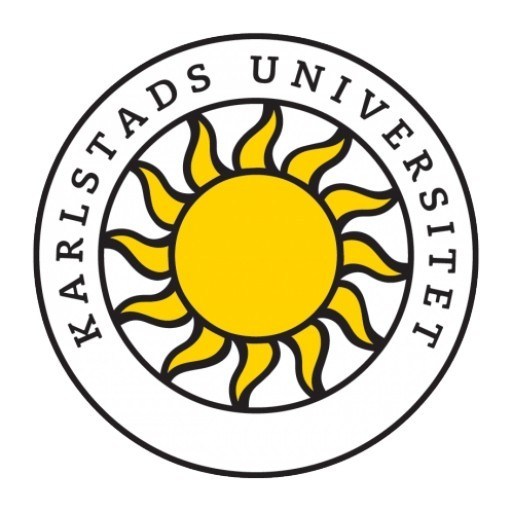Photos of university / #uppsalauniversity
The Bachelor's Programme in Economics at Uppsala University offers students a comprehensive introduction to the world of economic analysis, policy, and management. Designed to provide a solid foundation in both microeconomics and macroeconomics, the program equips students with essential analytical skills, quantitative methods, and theoretical understanding necessary to interpret and address complex economic issues. Throughout the program, students will explore topics such as market dynamics, economic development, fiscal and monetary policy, international trade, and financial markets. Emphasis is placed on developing critical thinking, problem-solving abilities, and the capacity to analyze data effectively, enabling graduates to make informed decisions in various economic contexts. The curriculum combines theoretical coursework with practical applications, including case studies and project work, fostering an understanding of how economic principles operate in real-world situations. In addition to core subjects, students have opportunities to specialize or deepen their knowledge in areas such as environmental economics, behavioral economics, or international economics. The program also emphasizes the importance of communication skills and ethical considerations in economic decision-making. Students will learn to use modern economic tools and software to analyze economic data, preparing them for careers in consulting, finance, government agencies, or further studies at the master's level. Uppsala University provides an international academic environment, encouraging students to engage in discussions, collaborative projects, and internships, thereby enhancing their global perspective and professional network. Graduates of this programme will be well-equipped for a variety of roles in the public and private sectors or for continued academic pursuits. The Bachelor's Programme in Economics at Uppsala University aims to develop versatile, analytical, and ethically aware economists ready to contribute meaningfully to society and the economy.
The Bachelor's Programme in Economics at Uppsala University offers a comprehensive and rigorous education designed to provide students with a strong foundation in economic theory, quantitative methods, and real-world application. The programme aims to develop analytical skills, critical thinking, and a deep understanding of economic processes at both national and global levels. Throughout the three-year course, students explore core areas such as microeconomics, macroeconomics, international economics, economic policy, and econometrics, preparing them for various careers in the public sector, private industry, and academia.
In the first year, students are introduced to fundamental economic concepts and models, alongside essential mathematical and statistical techniques necessary for economic analysis. Courses focus on understanding market mechanisms, economic decision-making, and the role of governments and institutions in shaping economic outcomes. The curriculum emphasizes the development of quantitative skills through courses in mathematics and statistics, which are critical for analyzing economic data and testing economic theories.
During the second year, students deepen their knowledge of microeconomic and macroeconomic theories, learning to analyze complex economic issues and policy debates. They also gain practical skills through applied courses in econometrics, allowing for empirical investigation and data-driven decision-making. The programme encourages an international perspective, with courses exploring global trade, finance, and economic development, preparing students to understand the interconnectedness of modern economies.
In the final year, students have the opportunity to specialize further by choosing elective courses aligned with their interests, such as financial economics, behavioral economics, or public economics. They also undertake a degree project, which involves independent research on a relevant economic topic under supervision. This project enhances research skills, academic writing, and the ability to synthesize theoretical and empirical analyses.
The programme is characterized by a combination of lectures, seminars, case studies, and project work, fostering active engagement and practical understanding. Uppsala University provides excellent resources, including modern library facilities, access to economic databases, and opportunities for internships and exchange programmes. Graduates of the programme are well-equipped for careers in economic analysis, policy advisory, finance, research, or to pursue advanced studies in economics or related fields.
Overall, the Bachelor's Programme in Economics at Uppsala University offers a stimulating environment for students passionate about understanding how economies function and eager to develop skills that are highly valued in various professional contexts. The education emphasizes critical thinking, quantitative analysis, and real-world relevance, ensuring that graduates are prepared to meet the challenges of a dynamic economic landscape.
Program requirements for the Bachelor's Degree in Economics at Uppsala University include a strong foundation in quantitative and qualitative analysis, requiring students to complete coursework in microeconomics, macroeconomics, and quantitative methods. Prospective students should have completed the Swedish upper secondary school course "Mathematics D" or equivalent, providing necessary mathematical skills for the program. During the first year, students are expected to undertake introductory courses in economics and mathematics, with an emphasis on developing analytical and problem-solving skills essential for understanding economic theories and models. The curriculum also involves coursework in statistics and research methods to prepare students for data analysis and empirical research.
To progress through the program, students must achieve passing grades in all core courses, which include Microeconomics, Macroeconomics, Econometrics, and Business Economics. In addition to coursework, students are encouraged to participate in seminars and group projects that enhance teamwork and communication skills. The program also emphasizes the importance of practical application of economic theories through case studies and internships, where students analyze real-world economic issues and gain hands-on experience.
Language proficiency requirements must be met, with courses primarily taught in English, and students must demonstrate command of English through standardized tests such as the TOEFL or IELTS if not native speakers. Additionally, some elective courses may require prerequisites, so students should plan their studies accordingly. The program culminates in a Bachelor's thesis, which requires students to conduct independent research under supervision, synthesizing their knowledge and analytical skills developed throughout the program.
Students are also advised to engage with current economic issues by attending guest lectures and participating in university-organized conferences, which provide valuable insights and networking opportunities. The program encourages international exchange semesters, for which students must meet specific academic and language criteria to broaden their academic and cultural horizons. Overall, the program aims to equip students with comprehensive economic knowledge, critical thinking abilities, and quantitative skills necessary for careers in academia, public policy, finance, or the private sector.
Financing in the Economics bachelor's program at Uppsala University is structured to provide students with comprehensive knowledge of financial principles, budgeting, investment strategies, and economic management. The program covers essential topics such as macroeconomics, microeconomics, financial markets, and fiscal policies, equipping students with the skills necessary to analyze financial data, interpret market trends, and make informed economic decisions. Students gain an understanding of how various financial instruments work, including stocks, bonds, and derivatives, along with the regulatory environment governing financial institutions. The program emphasizes practical application through case studies, simulations, and project work, enabling students to develop critical thinking and problem-solving abilities related to financial challenges faced by businesses and governments. Uppsala University provides various funding options, including scholarships and grants, aimed at supporting students financially throughout their studies. Additionally, students are encouraged to seek part-time work or internships in financial institutions, which are often available through university collaborations, to gain practical experience and supplement their income. The program’s location in Sweden also offers access to a strong financial sector, including Stockholm’s vibrant financial district. International students may explore additional funding via external scholarships from Swedish governmental agencies and other organizations supporting international education. The university’s career services provide guidance on financial planning and advice on sourcing funding for postgraduate studies if students choose to continue their education. Overall, the financing studies component integrates theoretical coursework with practical financial management skills, preparing graduates for careers in banking, investment, economic analysis, and related fields, with a focus on equipping students with both the technical knowledge and the financial literacy necessary to succeed professionally.
The Economics program at Uppsala University offers students a comprehensive education in the fundamental principles and contemporary issues of economic theory and practice. The program is designed to provide students with a solid understanding of microeconomics, macroeconomics, and quantitative methods, preparing them for diverse career paths in the private sector, public administration, or further academic studies. Students will gain insights into how markets operate, the role of government in economic policy, and the global economic environment. The curriculum includes courses in economic theory, international economics, development economics, and financial analysis, among others.
Throughout the program, students develop analytical skills, critical thinking, and the ability to interpret economic data. Uppsala University emphasizes both theoretical knowledge and practical application, often incorporating case studies, simulations, and project work into the coursework. The program also encourages an international perspective, reflecting the interconnected nature of modern economies. Students have opportunities to participate in exchange programs with partner universities worldwide, enhancing their global outlook and intercultural competence.
The faculty comprises distinguished economists and researchers who are active in their fields, ensuring that students receive current and relevant knowledge. Uppsala’s strong research environment fosters a vibrant academic community where students can engage in seminars, workshops, and ongoing research projects. Graduates from the Economics program are well-equipped for subsequent employment in consultancy agencies, government agencies such as the Swedish National Bank, international organizations, or they may pursue postgraduate studies at Uppsala University or other institutions. The program typically spans three years, leading to a Bachelor's degree in Economics, with options to continue onto Master's level studies for further specialization. Overall, Uppsala University’s Economics program aims to cultivate analytical capabilities, ethical awareness, and a deep understanding of economic systems to prepare students for effective participation in the global economy.









